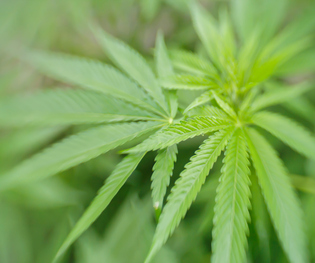With the legalization of marijuana for recreational use just around the corner in Canada, it appears to have become a more mainstream substance in a short amount of time. Not only will Canadian consumers be able to purchase marijuana legally, they will also likely be allowed to purchase cannabis-infused foods, drinks and supplements. Not surprisingly, recent research has also shown a rise in sensitivity to cannabis.
For many users of medical marijuana, cannabis is more than just recreational—it is imperative to their health and well-being. If consistent exposure to marijuana can cause an allergic reaction in some people, then this could create other problems for users and those passively exposed.
Can one really be allergic to marijuana?
An allergy is basically an immune defence by the body trying to protect itself from outside invaders. Whereas the antibodies can be successful in eliminating a perceived toxin, the increased immune response is also what leaves you with the typical allergy symptoms. So, what could be contained in cannabis that the body is trying to keep out?
A study published in AAAI showed allergic sensitization to Can s3—a protein found in Cannabis sativa. However, what makes a cannabis allergy potentially harmful is that as a substance, cannabis can be inhaled and/or ingested. Therefore, not only can the smoke cause allergic reactions (whether through direct or indirect exposure), but so can the pollen spores from the growth and/or production of cannabis.
Research has also shown that cannabis-infused foods and drinks, and the mould that the herb can develop over time, are also linked to cannabis allergies.
What are the symptoms?
Symptoms of a cannabis allergy are typically characteristic of other allergies, but can also be dependent on the way a person was exposed. For example, touching cannabis could result in a contact dermatitis reaction, whereas inhaling it can affect the eyes, sinuses and respiration.
Some reported symptoms of allergic reactions to cannabis are:
- Asthma (mild / bronchial)
- Chest tightness
- Contact urticaria – skin rash
- Dry coughing
- Dyshidrotic hand eczema – skin blisters
- Headaches
- Nasal congestion
- Nose and eye itching
- Pharyngeal pruritus – sore or itchy throat
- Generalized pruritus – itchy skin
- Rhinoconjunctivitis (acute / intense)
- Rhinorrhea – runny nose
- Sneezing
- Watery eyes
What’s next?
In Canada, a typical skin allergy test for cannabis is not yet available. Since there is no standard way to currently test for marijuana allergy, one should also expect questions relating to lifestyle, history of use and exposure.
Traditional treatment options for those with mild allergic reaction to cannabis are available, but for those with a history of asthma or anaphylaxis, or the chronically-allergic cannabis user, abstinence and avoidance of the allergen is best. This will likely include avoiding the expected abundance of cannabis-laced products expected to be available across Canada in 2018.
Although the research is small and recent, cannabis allergies are on the rise. Currently, most cannabis allergies can be treated similarly to other allergies, but more research is needed to better understand which allergens are present in cannabis, and to establish better treatment options.









